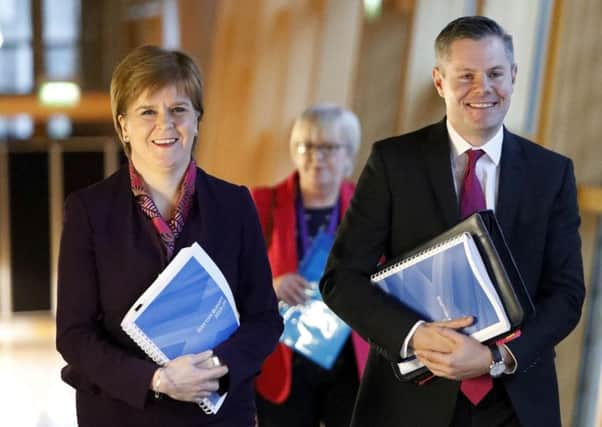Scottish Budget analysis: What a relief! '“ Bill Jamieson


In truth, little by way of major change was expected. For this was a Budget hemmed in by two dark forces: the relentless Brexit imbroglio which has already hit business confidence; and the gathering signs of a wider international economic slowdown ahead.
But despite lacking major surprises – indeed, perhaps because of this – the package was welcomed by the main business lobbies: the Scottish Chambers of Commerce, the Federation of Small Businesses and CBI Scotland – normally angry birds, now all tweeting sweetly together.
Advertisement
Hide AdAdvertisement
Hide AdParticularly praised was relief on business rate increases, scrapping the out-of-town levy, a town-centre diversification fund, capping the poundage rate and confirming the switch in rate rise calculations from the Retail Price Index to the Consumer Price Index for the duration of this parliament (business rate savings: £42 million).
In the face of pressure from the Scottish Greens and Labour, he has resisted calls for a hike in income taxes. Rates and levels will remain broadly frozen, with the UK autumn Budget personal allowance inflation rise passed on to low- and average-income earners. However, for higher earners, there is a sting in the tail, with the higher rate threshold frozen. A petty swipe, but most will be relieved that the tax gap between higher earners in Scotland and the rest of the UK was not further widened.
What of prospects? The Scottish Fiscal Commission, so gloomy last year, says the outlook for Scotland in 2018 and 2019 has improved. It forecasts growth of 1.4 per cent for this year and 1.2 per cent in 2019.
This, it says, reflects stronger recent economic performance, a more positive prospect for earnings over the next few years and the fiscal expansion announced in the UK Budget. This represents an increase of 0.7 and 0.4 percentage points respectively when compared with the Commission’s May forecasts.
Overall, it expects annual economic growth from 2020 onwards to settle back to around one per cent, reflecting low productivity growth compared with trends before the 2008 financial crisis.
But all this, as Dame Susan Rice, chair of the Fiscal Commission, points out, is based on the assumption of “a relatively orderly exit from the EU”.
“Relatively orderly”? Was that a muffled scream emanating from SFC Towers?
